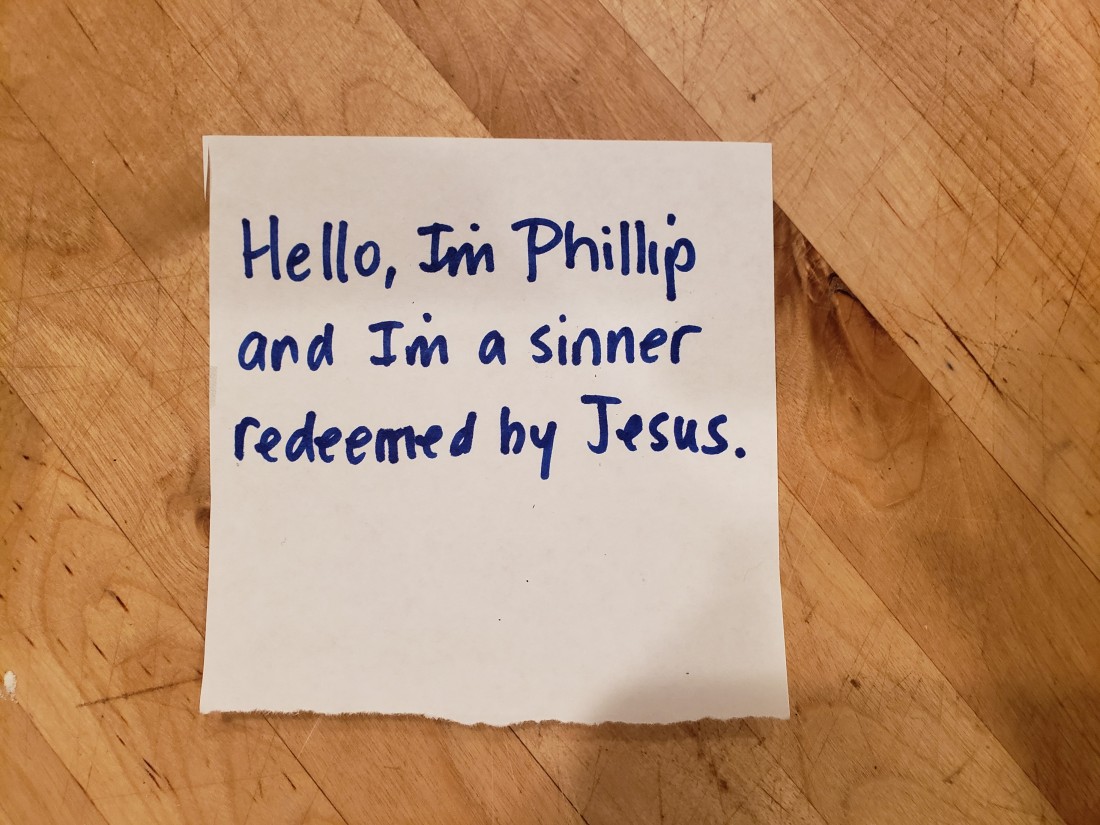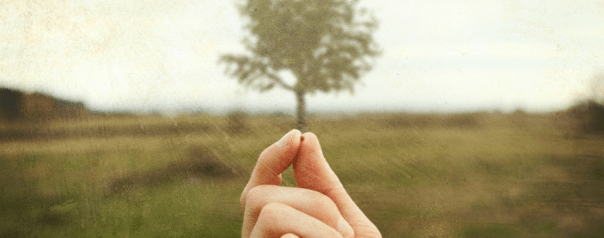a sermon for Reformation Sunday [Proper 25C/Lectionary 30C]
Luke 18:9-14
Jesus said, “I tell you, this man—the tax collector, the despised and commonly mistrusted tax collector—went down to his home justified rather than the other.”
So goes the punch line to one of Jesus most controversial parables. It’s a parable where two polar opposites go into the Temple to pray.
It’s a parable where if the start doesn’t catch us off guard, the outcome certainly does, for it is the tax collector—and since we don’t really have much of an association with tax collectors anymore, you can insert your own shady stand-in, maybe a drug dealer, maybe a loan shark, maybe an Astros fan—whatever it is, that shady person is the one who returns from prayers at the Temple one day justified. It’s not the Pharisee who is justified, the religious professional, the one with the seminary degree who has checked all the right boxes, but that tax collector. This is kind of a big deal because no one listening would have seen this punch line coming. If anyone was a candidate for justification, it would not be the tax collector.

As it turns out, justification is also the punch line to the Protestant Reformation. It’s a funny word, a churchy word. Not many people really use this word anymore, but just as it forms a line between those two in the Temple that day, justification became the dividing line of the church in the west. The idea of how one becomes justified before God was what led Martin Luther to reform the Catholic church, beginning with the posting of the 95 Theses in 1517. And in 1999, when the Lutherans and the Roman Catholics found themselves back at a table for discussions, the concept of justification is what had brought them together.
In fact, it may not just be the punch line of this parable, or the punch line of the Protestant Reformation, but indeed the punchline of Christian faith. As the apostle Paul puts it in his letter to the Romans, “we are justified by God’s grace through faith, apart from works of the law.” Or, to put it in the language of Jesus’ parable this morning: Those who trust in themselves to right their relationship with God are going to come up empty-handed, but those who depend only upon God’s mercy are the ones who wind up justified.

All that having been said, most of us nowadays, when we hear the word justification, probably think not of 16th century theological arguments, but of margins on a typed document. With one simple click on the computer screen, we can justify the margins on the left, or we can justify them on the right, or we can justify them on both the right and the left, leaving a nice flush line along the sides. And so it is with faith, as we work to understand the punchline to this parable: What is it that makes us flush with God? What takes our raggedy, mismatching edges and lines them up all nice and clean? What sets us in alignment with God’s heart and favor?
In the end, it is nothing we can do ourselves. We can’t click any little icon. God’s grace alone can do it. God’s love for us in Jesus Christ, crucified and risen, sets us in line and makes us right with God. When we are aware of our imperfections, when we give voice to our brokenness, then we are open to hearing and receiving how God’s grace sets us free. We are justified by God’s grace through faith, apart from the works we do ourselves.

And that’s what the Pharisee doesn’t understand, for all his religiosity, for all his fancy do-gooding. He is pleased with himself and his own list of accomplishments. He fasts more than is required of him, not just once a week but twice. And he gives ten percent on everything he acquires, which, according to many of the tithing laws of that time, is considered going above and beyond what is expected. And if all of that that is not enough to set him apart from all the others in the Temple, he also stands apart from everyone, alone, beginning with a prayer of thankfulness that he is not like all the others.
That’s, of course, where justifying ourselves with God or being pleased with our own status ultimately goes—to constantly comparing ourselves with others. We think, maybe even just to ourselves, things like “Dear God, I thank you that I’m not like those people who don’t return their shopping carts.” Or “Dear God, I thank you that I’m not like those who cheat the welfare system.” Or “Dear God, I’m thankful I’m not like one of those white supremacists.” And even if we check ourselves against thinking and praying those kinds of things, even if we know better than to look down on others, we can still, if we’re not careful, finish hearing to Jesus’ parable and think to ourselves, “Dear God, I thank you that I’m not like that Pharisee.”
I found myself this week sitting at the Division for Motor Vehicles. I was there because at some point in the last several weeks I had lost my license, but I also thought it could be time to go ahead and get the Real ID, since it will be required for all domestic flights in about a year. The DMV does not probably rank on anyone’s list of favorite places to be, and it is not on mine, but as I sat there and sat there and sat there I found myself admiring its atmosphere of equality. We were all huddled in one large room, first in a line and then in rows of chairs. There was no way for any of us to set ourselves apart from anyone else, even if we wanted to. All different races, ages, income levels, probably even different legal statuses. The couple with a child in front of me were speaking a language I couldn’t place.

It occurred to me that rarely are any of us in such close proximity to so many different types of people as we are when we’re at the DMV. In a sense, we were all there to be justified—not by God but by the state. As we waited, even our names were omitted, each of us reduced to a letter and a number. I was I202. And as I sat there, trying to figure out the pattern the numbers and letters were going in, I glanced around the room and realized some Pharisee-like thoughts drifted into my head. I watched. I observed, I imagined myself in their skin, what their stories might be. And found myself thinking, “At least I’m not like these people who are on their smart phones all the time. See, God? I brought a book to read.”
But when I202 was finally called and I proudly sauntered up to the counter, I discovered, to my horror, that I was missing one proof of residency. The lady shook her head at me and sent me home, unjustified by the Commonwealth of Virginia. I have never felt so rejected in my life, but it was my own fault.
We had a professor in seminary, the one who taught us pastoral care, who began each semester not by discussing the syllabus, but by standing up in front of the class by announcing, “Hello, I’m Tony and I’m a sinner redeemed by the cross of Jesus.” It seemed so strange to me at first, but then I realized it helped all of us hear him later when he would have to cover very moralistic topics and warn us against certain behaviors or practices we might take on as ordained pastors in the future. To start with his own confession and have that always before us helped us receive his lessons because we knew though he was much wiser and more experienced, he was still just one of us, full of brokenness.
What Jesus means with the parable of the Pharisee and the tax collector is that the life of faith is about only being concerned with my own sinfulness, with my own lack of credentials, when it comes right down to it. There really is no part of Christian faith that involves comparing ourselves with others. There is no part of following Jesus that involves looking at my neighbor and setting myself against her in any way, good or bad, unless in so doing I find myself at her feet in service to her needs.

We do live in time where we love to call out other people (it’s called Call-Out Culture), where we love to confess other people’s sins. We live in a time where self-promotion is the name of the game. Its self-exaltation all the time, on Facebook, Insta, Twitter. We show our best sides, our fanciest dishes, our vacations. We forge our own identities, display the sides we want others to notice.
Before God, however, we can only humble ourselves. In the eyes of the Almighty, there is no profile photo, no avatar other than our own shortcomings. And yet in spite of that, God comes to our side to love us, to lift us up, so say it’s OK that you have no credentials, that you’ve forgotten your proper paperwork. He still receives us. As Martin Luther said, “God doesn’t love us because of our worth. we are of worth because God loves us.”
It’s difficult to know what kinds of questions people are asking about God these days. We know the issue of justification was the central faith question of Luther’s day 500 years ago. People constantly wondered, “How do I get right with God?” I’m not sure that’s the question people ask these days. In fact, I wonder if people are asking many questions about God at all, and if we are, the questions are all over the place, questions like, “Is God real?” and “Can I expect God to work in my life?” and “How do I pray to God?” Statistics show us that in the United States church worship attendance and church membership are dropping off sharper than people initially projected just several years ago. An article in the Wall Street Journal last week reported that every age group, racial group, and region of the country is less Christian than a decade ago.[1] By some calculations, the ELCA will no longer be the largest Lutheran denomination by worship attendance in just a couple of decades, a sobering fact we heard this week at a pastors’ conference.
But as worrisome as all that may sound, I’m not sure it’s our problem to be concerned by those numbers, or even be concerned with them. The gospel has never been about winning popularity contests. The gospel is about telling the truth about God and God’s love for the world. It’s about leading the world in honesty with ourselves because we trust a God who is a mighty fortress but who also lifts up the lowly and exalts the humble. Whether or not we continue to dominate the culture numerically is no concern of ours (unless, of course, we want to compare ourselves like Pharisees do).
Perhaps, then, the reform the church needs today is to remind itself of its call to be more like the DMV where all people can come and not feel compared to one another, where all races, income levels, neighborhoods can be ushered into the presence of the holy God, where, as the Psalm states this morning, even those among us as fragile as sparrows and swallows can find shelter.
Perhaps the best reform we can commit ourselves to today is to hear God’s word and then realize the church is a place where all sinners belong, where we all step to the counter empty-handed and receive a righteousness for free.
Perhaps the best answer we can offer a questioning world is the punchline that is saving us: here, in God’s kingdom, we have come to understand we are seen not according to any status but our brokenness, and then still, out of grace, assigned our true identity: child of God. Forgiven. And yes…justified!
Thanks be to God!

The Reverend Phillip W. Martin, Jr.
[1] “Religiosity, Church Attendance Fall Sharply” in The Wall Street Journal, October 19, 2019 pA3
















